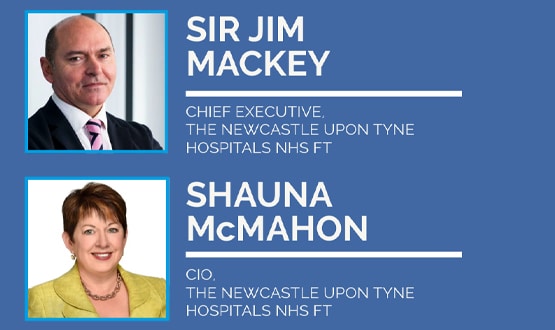NHS CRS delayed by nine months in South
- 17 February 2005
The delivery schedule for the core NHS Care Records Service (CRS) solution in the South of England has slipped by nine months. The key release that will start to deliver clinical functionality such as order communications is now not due until June 2006 at the earliest.
E-Health Insider has learned that the Southern Cluster Implementation Executive Board was formally informed of the latest delay this week by Fujitsu Alliance, the local service provider (LSP) for the South of England. One NHS hospital IT director told EHI: "We had been planning to go in October 2005, but now won’t be going until June 2006 at the earliest."
He added that the delay would have serious consequences: "We’ve appointed staff to get ready for implementation and the delay means it is now inevitable that we will have to lay some off. It will also have a huge impact on clinical support."
With the South of England and London regions developing a ‘Common Solution’ there is a potential risk that the delays in the South may also apply to London. "The delay speaks volumes of the inadequacies of the management of the programme," said the hospital IT director.
Details of the delays are set out in a communication from a strategic health authority chief information officer (CIO) seen by EHI which refers to "significant slippage on the availability of the full P1R2 [Phase one Release two] release", and says the earliest delivery date is now thought to be by the middle of June 2006. It adds the likely release date for P2R1 has now slipped to the end of November 2006.
In the jargon of the national programme Phase one Release two represents the key milestone at which the core solution extends beyond basic patient administration to deliver clinical functionality such as basic order communications.
A second NHS IT director from the South told EHI: “The slippage of P1R2 is a big problem. My concern is that it means hospitals will have to continue to rely on ageing systems.”
He added that while he remained extremely supportive of the National Programme for IT’s (NPfIT) strategic aims, continued delays represented a real danger to the credibility and success of the programme: “There is huge potential for the programme’s reputation to be further damaged. We all have to justify business cases to our boards and delays make it easier for organisations to say it’s too difficult let’s not do it.”
A third NHS IT director, at a trust in urgent need of a replacement system, told EHI he had not received any notification of any delay. He said: "We are still working to an implementation timetable agreed in the autumn."
The CIO document makes clear that the revised delivery dates represent a serious setback. It describes the June 2006 date as "well outside the window that had previously been signalled by the Common Solution who are managing the system build on behalf of both clusters [London and the South]".
The Common Solution referred to is the BT-led project to deliver a standardised version of IDX’s Carecast system for use across both London and the South of England.
The NHS IT director said that the greatest unknown was what will be the impact of the delays on the rest of the programme: “What we don’t know is what impact this six month delay will have on the ground. Will it be cumulative or will it be possible to concertina timescales?”
The CIO document said: "My take on this is that whilst the delay is extremely bad news there are some positive messages that can be given."
The silver lining pointed to are recent steps and "corrective measures" undertaken by the NHS and its suppliers "that will assure eventual delivery of a product that is fit for purpose".
EHI understands that these “corrective measures” relate to a 120-day review that Fujitsu Alliance has begun, examining in detail where the development of the IDX Carecast solution has got to. This will be accompanied by the preparation of a new revised detailed deployment plan.
The CIO document added that while the existing deployment plan being worked to had already become extremely congested, “this position worsened with the recent announcements about Choose and Book”.
It states that the additional time provided by the delay should provide time to “more adequately prepare for the change management task that will accompany each deployment and spread the financial impact across financial years”.
The document said that by March there should be some clarity about the extent to which Fujitsu and NPfIT may be able to provide assistance “that may help to mitigate the impact of the delay and also restore any loss of confidence in the perceived ability of the Programme to deliver”.
The NHS IT director concluded that there was now a real danger that further slippages and delays will continue to mount, sapping confidence in the programme. “My guess is that 2005 will slip past without being the year of delivery. The danger is that 2006 may well slip past as well.” He predicted that it would be another two years before the programme started to really deliver new clinically rich systems in significant numbers.
Despite specific enquiries from EHI the national programme refused to confirm or deny the latest delays. In a statement it said that the details of planned implementation timescales received at the February Cluster Programme Board are "broadly in accordance with the published timescales".




